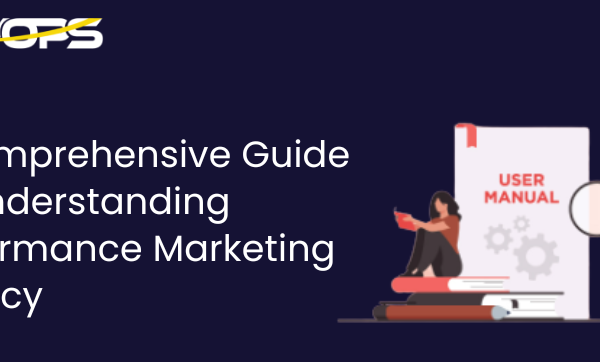
Data-Driven Decisions: Leveraging Analytics for Performance Marketing Success
In the fast-paced world of marketing, businesses are constantly seeking effective strategies to achieve optimal results. One approach that has gained significant traction is performance marketing, a data-driven approach to marketing that focuses on measurable outcome and leveraging analytics for performance marketing success.
Leveraging analytics and making data-driven decisions, businesses can enhance their marketing campaigns, improve customer targeting, and achieve higher returns on investment (ROI).
In this blog post, we will explore the right way of leveraging analytics for performance marketing success and highlight the key benefits of data-driven decision-making.
Understanding Performance Marketing
Performance marketing is a marketing strategy that revolves around driving specific actions or outcomes, such as lead generation, customer acquisition, or conversions. Unlike traditional marketing methods that rely on broad targeting, performance marketing relies on precise targeting and measurable results.
This approach allows businesses to allocate their marketing budget more effectively and optimize their campaigns for maximum performance.
The Power of Analytics in Performance Marketing
Analytics plays a vital role in performance marketing by providing insights and data-driven decision-making capabilities. Here are some key ways in which analytics empowers performance marketing success:
a. Data Collection and Analysis: Analytics tools allow businesses to collect and analyze vast amounts of data from various sources, such as website traffic, social media interactions, and customer behavior. This data helps identify patterns, trends, and actionable insights that can be used to optimize marketing campaigns.
b. Targeted Audience Segmentation: By analyzing customer data, businesses can segment their audience based on demographics, preferences, and behaviors. This segmentation enables personalized marketing efforts, allowing businesses to deliver highly targeted messages to the right audience, resulting in improved conversion rates.
c. Campaign Optimization: Analytics provides real-time feedback on campaign performance, allowing marketers to identify underperforming areas and make data-driven optimizations. By tracking key metrics such as click-through rates, conversion rates, and cost per acquisition, businesses can refine their strategies, allocate resources more efficiently, and achieve higher ROI.
d. Predictive Analytics: Leveraging advanced analytics techniques, such as predictive modeling and machine learning algorithms, businesses can forecast future outcomes and make proactive decisions. This empowers marketers to anticipate customer needs, optimize ad spend, and stay ahead of the competition.
Benefits of Data-Driven Decision-Making in Performance Marketing
Implementing data-driven decision-making in performance marketing offers several advantages:
a. Increased ROI: By using data to inform marketing decisions, businesses can optimize their campaigns and allocate resources effectively, resulting in improved ROI. They can identify high-performing channels, target lucrative customer segments, and allocate budgets to initiatives that yield the best results.
b. Enhanced Customer Insights: Data-driven marketing enables businesses to gain deeper insights into customer behavior, preferences, and needs. By understanding their target audience better, businesses can create personalized experiences, tailor messages, and develop more relevant campaigns.
c. Improved Campaign Performance: Data-driven decision-making enables marketers to continuously monitor and analyze campaign performance. By making data-backed optimizations, such as adjusting ad creatives, refining targeting, or tweaking landing pages, marketers can drive higher engagement and conversion rates.
d. Agility and Adaptability: In a rapidly evolving market, data-driven decision-making allows businesses to adapt quickly to changing trends and consumer preferences. By monitoring real-time data, marketers can identify shifts in customer behavior and make agile adjustments to their marketing strategies.
Final Words
In the realm of performance marketing, leveraging analytics and making data-driven decisions is no longer optional but essential for success. By harnessing the power of data, businesses can gain valuable insights, optimize campaigns, and achieve remarkable results.
From precise audience segmentation to real-time campaign optimization, analytics empowers marketers to stay ahead in a highly competitive landscape.
Ready to work smarter, not harder? Try Zavops today.


